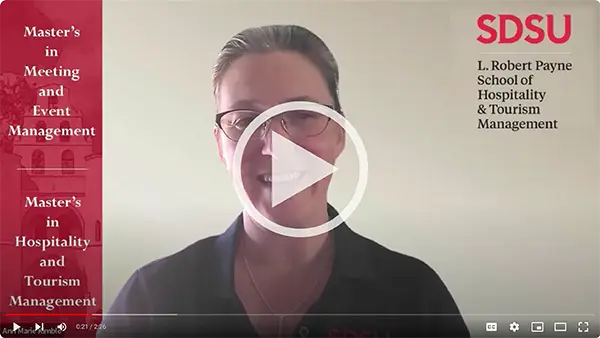By M. Theresa Breining, CMP-F, CMM, CED | Co-Director, Meeting & Event Master’s Program | San Diego State University Payne School of Hospitality & Tourism Management
What does it take to be a successful leader – particularly in times of rapid change, new competition and increasing complexity?
Have you hit a ceiling? Unsure about your next steps? Do you believe you have leadership skills, but know that they need some polishing?
The IAEE Leadership Institute on 27-28 June in Baltimore gives you the opportunity to explore these questions and begin a new journey of self-discovery.
Leadership includes strategy, planning, financial management, resource deployment and many other attributes considered “hard skills.” But effective leaders must also possess self-awareness (knowing who you are, what’s important, how your words impact others), discipline (keeping your word, exercising restraint, sticking with a vision even when it becomes difficult), wisdom (learning from your mistakes, trusting the counsel from others, enabling others to make their mistakes), and courage (admitting when you’re wrong, staying aligned with your values, moving forward with difficult conversations).
Sometimes these understandings are referred to as “soft skills.” But really, they are the ‘superpowers’ that help good people become successful leaders.
This year’s IAEE Leadership Institute program was created from an excerpt of the master’s program at San Diego State University’s Payne School of Hospitality & Tourism Management. It will introduce the themes of Leadership Mastery – Self Mastery, Relationship Mastery and Context Mastery. Together, these masteries form the basis of strong and effective leadership.
The program includes an assessment of the behaviors that serve you well, and those that present barriers. Participants will identify the behaviors of others that seem to trigger responses and learn some practices to manage those responses more effectively.
For example, you may know you work really well independently and will always deliver what you’ve committed to. So, when managers hover and micromanage, it may trigger the feeling that they don’t trust you. The leadership opportunity is to recognize that their actions don’t necessarily indicate distrust, but perhaps their lack of knowledge about the work you are doing.
Here’s another example: When presenting information, you may want your audience to get a complete picture, so you explain in great detail. If someone gets impatient and starts interrupting you or wanting you to get to the final point, you may not react well. The leadership opportunity is to understand who you’re talking with and adjust your presentation style to their preferences.
Participants will also identify how their personal values can, and should, be integrated into their professional life as well as some conflict management tools to guide them when their values bump up against someone with different values.
Let’s look at this from a practical application. Let’s say one of your values is to do everything in your power to make sure the job is done, even if it means you frequently work late and you’re not with your family for every meal. If you’re managing a team member who is a superstar – and for whom family is one of their top values – you can’t expect them to keep the same hours you do, but trust that they will get the job done in their own way and in their own time.
Last, but not least, participants will have the opportunity to flesh out a business plan addressing either a personal or professional initiative, which will provide clarity and structure to something they may have only been imagining.
The life span of the business plan will depend on the goals of the individual. If someone wants to create a plan to become a top-level executive within their organization, that could take six months to a year. If someone has an idea for starting a business, it could be a one- to two-year plan. The benefit of the business plan is gaining the proper insight into what is needed and how to go about it.
Will participating in this two-day IAEE Leadership Institute magically transform you into a superstar leader? Of course not. Good leadership is a journey that lasts a lifetime. What it will do is put you in an extremely focused environment that provides context, ideas and maybe a new direction for your journey while delivering a uniquely valuable set of skills that will definitely give you an advantage.
Click on the video below to learn more about the program from IAEE Leadership Institute facilitator Ann Marie Kimble, MS, Co-Director of the Master’s Program at San Diego State University’s Payne School of Hospitality & Tourism Management, Franchise Performance Support Manager, IHG Hotels & Resorts.



